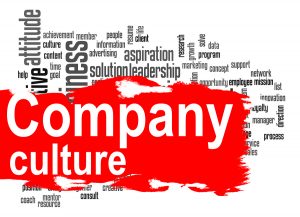For decades, we’ve heard that company culture is important. How many times have we been told why? We’re told that our company culture can make or break us. Again, why?
Because ultimately, it’s your company culture that gives you a true competitive edge. It’s what produces a constant, outstanding consumer experience.
To understand your company culture, you have to define it. That way, you can change it if you need to.
Changing it isn’t difficult. Figuring out what it is will take effort. That’s because culture is elusive. You can’t go to the office supply store and buy some off the shelf. Your people develop it, and if it’s unhealthy, your company will take a hit.
Awesome talent will pass on job offers. You’ll lose good people. You may even see your sales dry up.
Getting a Feel for Culture
It’s often better to just feel it than talk about company culture. Here’s an example.
A job candidate arrives at your office. She’s greeted by your highly professional receptionist (read: “disinterested”). The reception area is as infused with personality as your receptionist. The candidate is instructed (not asked) to sign in, put on a badge, and take a seat.
Another member of your organization arrives to lead the candidate to the office where the interview will take place. It’s a labyrinth of cubicles. The only decoration is the poster on the wall telling everyone what the required current minimum wage is supposed to be.
No one looks up with curiosity to see who’s coming. No one offers a greeting of welcome. No one even speaks.
Perhaps a bit heavy on the “office from hell” stereotypes, but you get the picture. It’s a snapshot of the “feeling” of a company’s culture.
Here’s the thing. This could be a very successful company. It’s driven. But would you want to work there?
What Things Are Not
Culture can be both nonverbal and spoken. Culture is how a company approaches things. Culture isn’t the work itself. It’s how we do the work. How we approach the work is indicative how we approach dealing with each other.
Procedures get written in manuals. Rituals and shared values usually don’t. Yet, these define a company’s culture.
Some organizations have cultures so distinct that they become identifiable trademarks. Nordstrom, Ritz-Carlton, Amazon, Tesla, and Apple are examples.
What’s interesting is that in many cases, we actually don’t know what it’s like to work for these companies. We assume that because we are treated like royalty at the Ritz-Carlton, they must have a culture that rewards thoughtfulness.
How could it not be that way? How could the Ritz-Carlton become known for customer service beyond the call if the culture of their company was negative and punitive?
Company Culture is the DNA of its Products and Services
If you agree to this, you understand the value of knowing and growing company culture. The challenge is, how do we culture a culture?
The first step is to understand your current company culture. Understand it. Don’t judge it.
An important part of this understanding is uncovering the reasons your company culture evolved as it did. Don’t overlook the role of tradition. Most culture – company culture or not – is based on tradition.
The reason nobody hangs out after work might have nothing to do with lack of trust or camaraderie. Maybe it’s because nobody’s ever suggested an after-hours gathering. Maybe the reason there’s no art or personality in the office isn’t because the HR department is run by colorblind trolls, but because they original office lease from 25 years ago prohibited artwork hung on the walls. Has anybody checked?
If this is all starting to sound way to touchy-feely, it might be time to loosen the reigns on your concept of business. Unless your company is made up of robots, it’s the people working there – and the combination of their personalities – that result in the identity of your products and services.
The more you know about what motivates these people, the easier it becomes to create strategies for growth and innovation. The more you understand the culture of your organization, the easier it becomes to selectively feed the traits that will sustain what’s already good, or that will move the organization in a desired direction.
Direction is Crucial
You can’t force culture on a company, but you can shape it. The ultimate goal of any company is to align the culture with their strategy. Or vice versa.
Because here’s what will happen if a organization’s leaders decide to take a direction that’s contrary to the organizations culture.
Failure.
That’s why company culture is important.
We’ve been cooking up our company culture since we opened for business in 1978. Considering who we are, don’t judge us unfairly if we greet you at the door with a badge holder. That really is part of our DNA.


